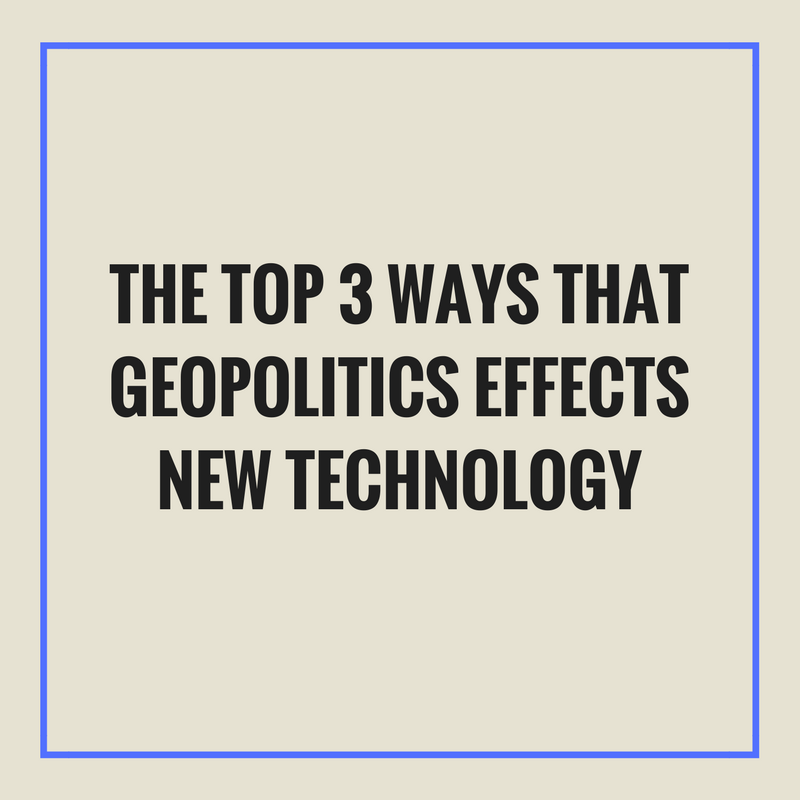Geopolitics is a 20th-century word formed by two Greek words condensed into one. These are geo (which means Earth) and politics which means (affairs of the cities). By definition, geopolitics can be defined as the geographical factors’ influence on politics, especially when it comes to national relations. If you’ve been closely following the trends on global affairs, it is not rocket science to tell that geopolitics has a role to play in the society. It has an influence on economies, security, and supremacy of nations, as well as various impacts on a global scale. Most importantly, geopolitics seems to influence technological revolutions. It seems to dictate the speed at which new technologies emerge, are utilized, or become irrelevant. This having been said, here are the top 3 ways that geopolitics effects new technology.

- Defense and International Supremacy
One of the most important drivers of the tech world these days is the need of nations to ensure the safety and security of their citizens. Despite some countable nations, most of them war-torn zones, every state, nation, or country in the 21st-century world puts security as one of its major priorities if not the most important ones. With the US as a good example, nations spend millions of dollars on military technology. A huge amount of this spending is in training, combat, and disaster preparedness. Robotics and artificial intelligence are also frontrunners.
But no doubt about it, geopolitics has some limits on the certain technologies such as missile-making. With countries such as North Korea flexing their muscles by launching test missiles in deep-sea and other zones, nations will be watchful. Some will complain and others will be forced to go back to the drawing board in search of new technologies to deal with missile threats. More new high-tech security enhancement devices and advanced systems such as Nuclear Event Detectors are likely to be developed, thanks to an increase in the hunger among nations to protect their citizens and remain politically relevant.
- Increased Competition among Tech Companies
Governments work closely with tech companies in a myriad of ways and a vast array of areas. Today, Chinese tech giants may be considered the best in the electronic and robotics engineering worlds. However, this doesn’t mean that companies from the rest of the world are asleep and at rest with this. It wouldn’t be a surprise that some might even be receiving funding from their governments. Additionally, more than just a few big names in the tech world such as the facebook owner and CEO has been known to have political ambitions. The geopolitically influenced competition in the tech world might actually be a good thing for new technology.
- The Undying Global Need to Better the Environment
Global warming, climate change, and poaching are all common problems the world is experiencing. Many nations are working with their neighbors and distant allies to better their environment. As a matter of fact, environmental conservation and protection is a global debate. This is likely to encourage the birth, rebirth, and transformation of new technologies to counter the deleterious effects of global warming and deal with other problems. There are also continuing debates on other technologies such as genetic engineering and its use in agriculture. Debates on the use and safety of genetically modified organisms are also likely to spark new inventions and innovations, thanks to geopolitics.
You can also stay updated by subscribing to iTechCode.